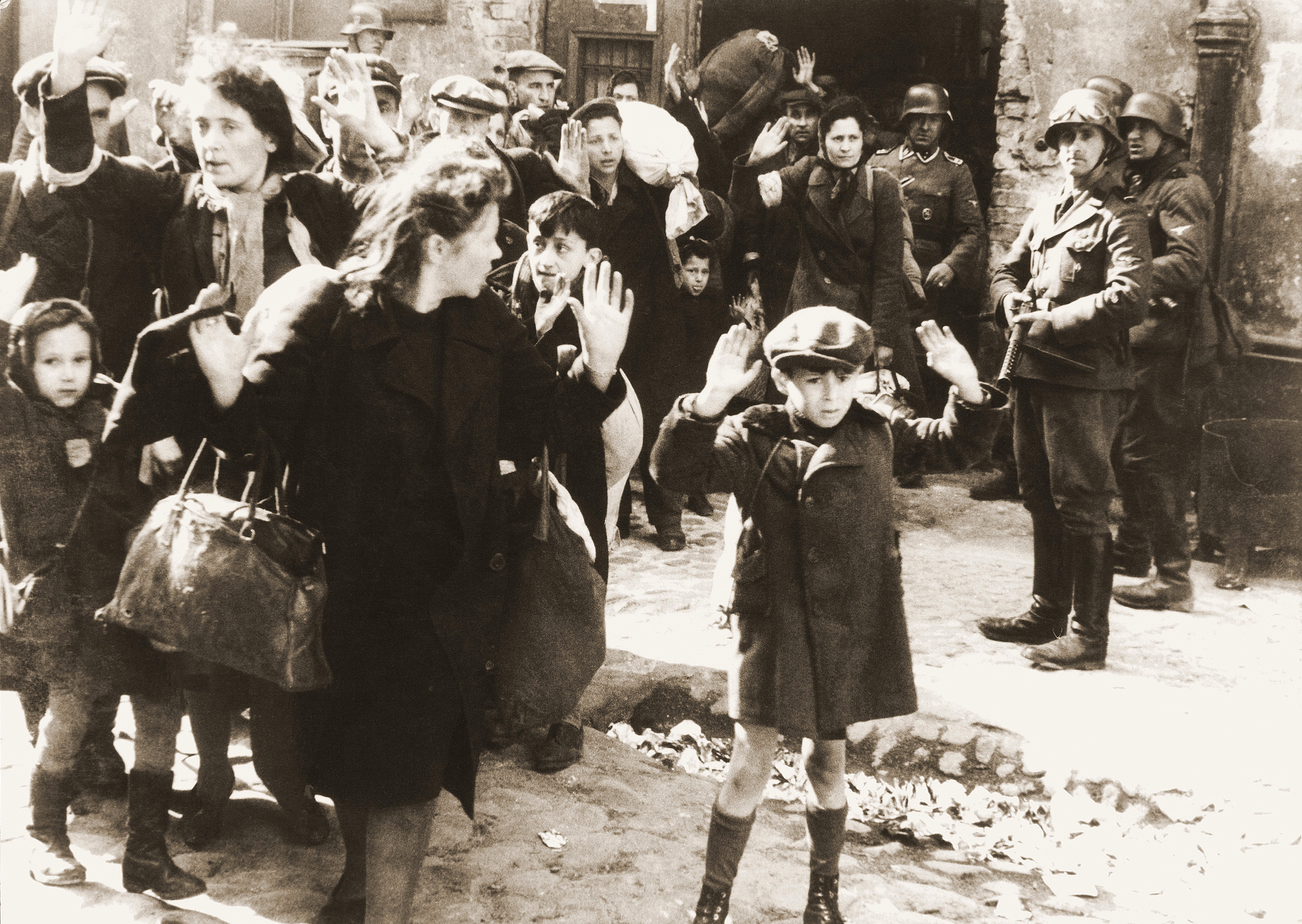On Holocaust Memorial Day last year, our founder Adam wrote an article saying that ‘evil progresses cunningly’, through ‘a million tiny cuts to liberty’.
But how could the most horrific mass murder in human history have involved lots of ‘tiny’ breaches of freedom? And does this relate to us in the West today?
Lies, Dehumanisation, and Restrictions
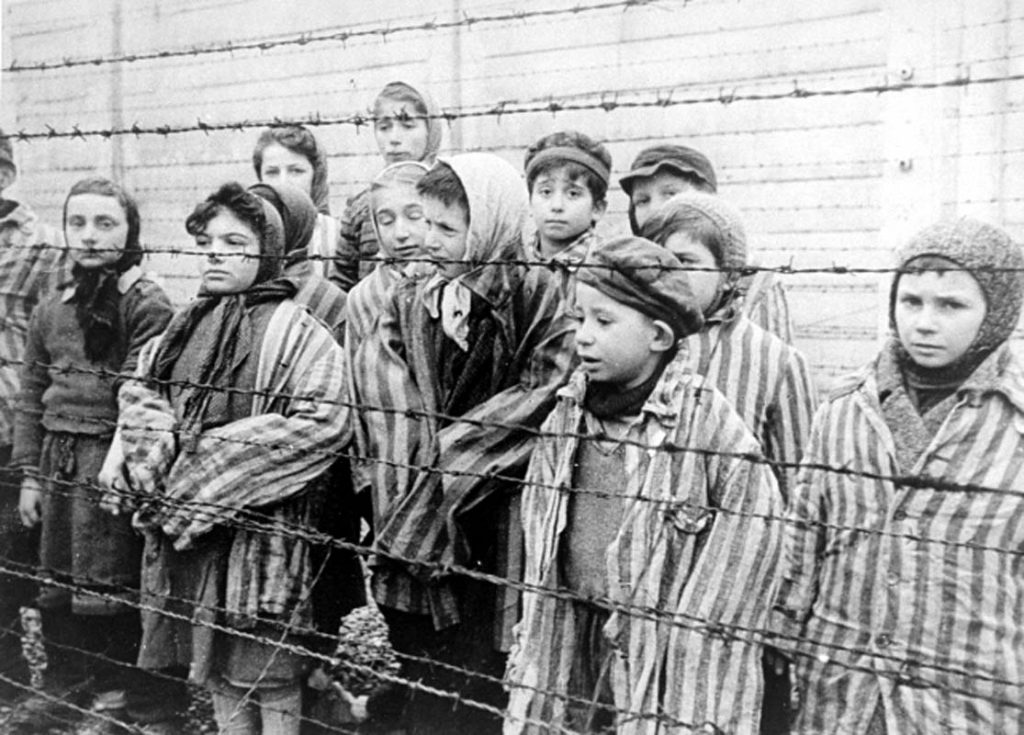
Image Credit: Public Domain / Wikimedia
There are debates amongst historians about whether or not Hitler planned the ‘Final Solution’ years before it happened. But it is undeniable that the Nazis paved the way to the gas chambers with years of persecution of the Jews and other social groups.
With concentration camps in mind, we assume that most forms of Nazi persecution must have involved overt physical violence and arrests. But a lot of it related to aspects of everyday life.
For example, during the 1930s the Nazis passed a law that empowered officials to strip business owners of all rights of the sale of their assets if there was any suspicion that profits were being exported abroad. Because a lot of Jewish people had connections abroad, the practical effect of this law was anti-Semitic. It began a process where Jewish people were forced to sell their properties to non-Jewish Germans (“Aryanization”).
The Nazis then passed laws that meant buyers were not allowed to pay Jewish people the true value of their business, meaning buyers got a cheap deal. The proceeds of the sale were then taxed so heavily that the Jewish seller was left with almost nothing.
Spreading Propaganda and Hate
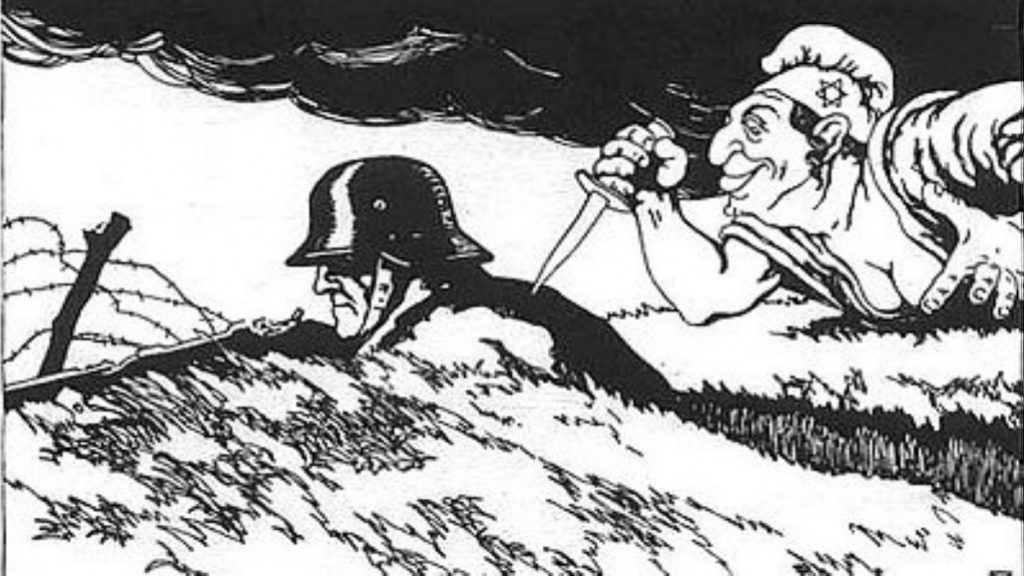 Image Credit: Public Domain / Wikimedia
Image Credit: Public Domain / Wikimedia
The Nazis also used propaganda to spread lies about Jewish people. For example, they spread a “stab in the back” myth that Germany had lost World War I because of internal traitors, such as Jews and Communists, working for foreign interests. These myths about the Jews were widely believed, partly because they subtly played on existing prejudices, including fear of foreigners.
Nazi propaganda also tried to dehumanise the Jews. It compared Jewish people to rats, cockroaches and lice. This fed Nazi lies that Jews were, like parasites, extorting money from ordinary Germans and that Jewish financiers had taken advantage of Germany during the war for their own interests.
The Nazis embedded these messages deep into the national psyche; propaganda appeared in ordinary places, like cinemas, public exhibitions, school textbooks and posters on the streets. What’s more, these lies were consolidated by oppressing opposing views. Other political parties were banned, and books were publically burnt.
Stripped of Citizenship and Unable to Marry
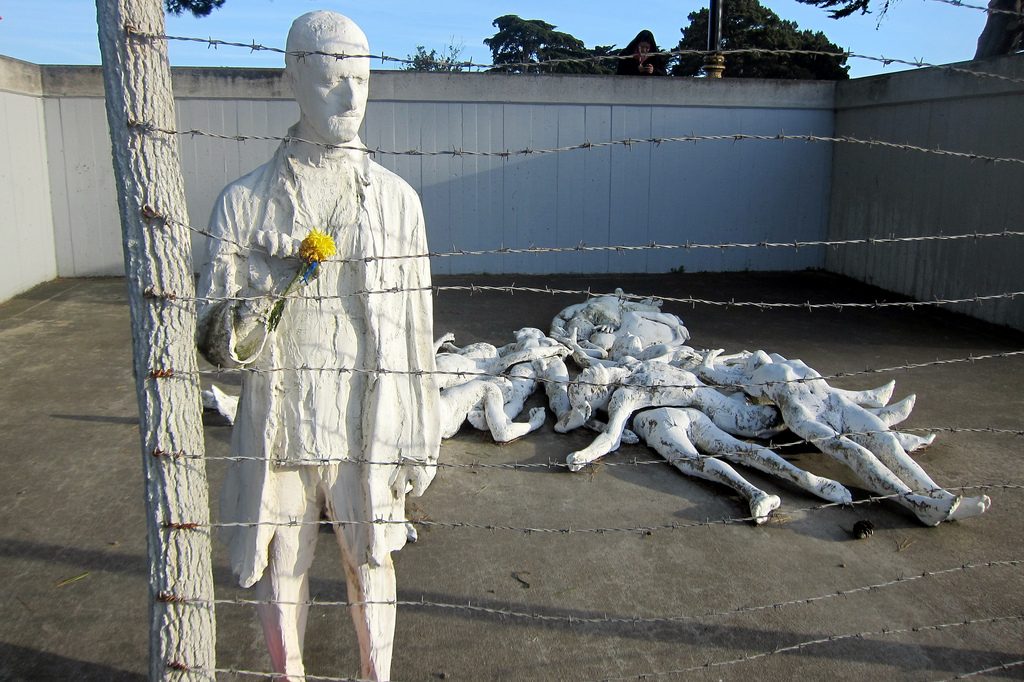
A Holocaust Memorial in San Franciso. Image Credit: Wally Gobetz / Flickr
In 1935 the Nazis made it illegal for Jewish people to marry non-Jewish people. German Jews were also stripped of their citizenship. This reinforced the idea that Jews were not true Germans, further dehumanising them.
These and other erosions of basic freedoms lead to forced emigration, increasing violence against the Jews, and finally deportations to concentration camps.
Ultimately, this persecution culminated in one of the most horrific genocides in human history, involving the torture and murder of 6 million Jews and 5 million others including homosexuals, Communists, Christians and disabled people.
Whilst there is a clear difference between unfair property transactions and the gas chambers, what all of these measures had in common was that they involved abuses of fundamental human rights. For example, in the Human Rights Convention, Protocol 1-1 protects the right to peaceful enjoyment of property, Article 10 protects freedom of speech, Article 12 protects the right to marry and Article 2 protects the right to life.
A Continued Relevance Today
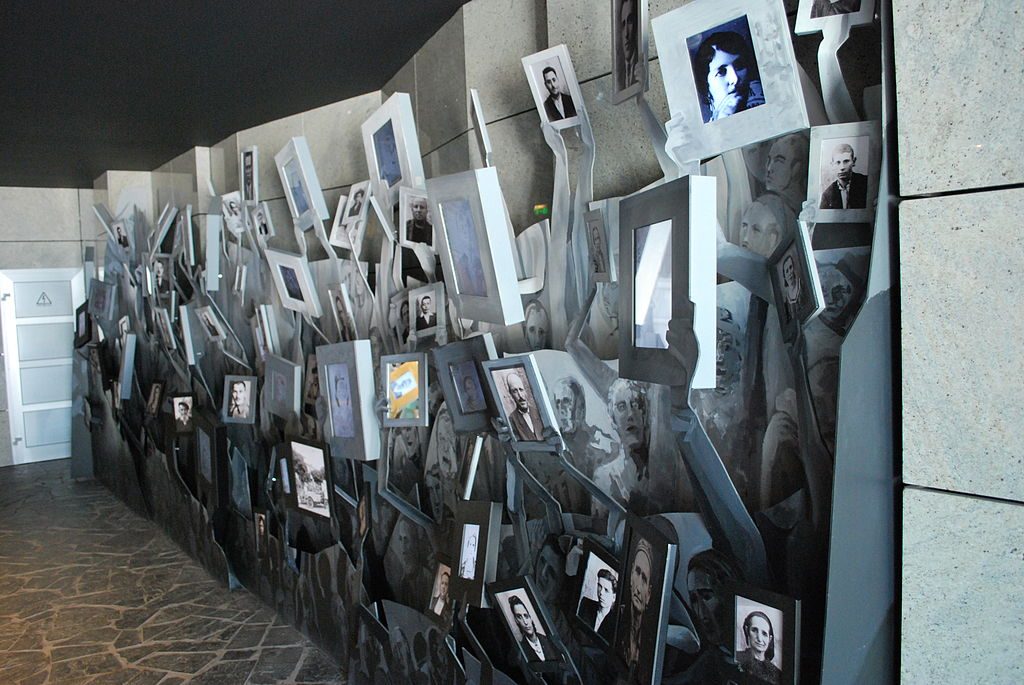 Image Credit: Raso / Wikimedia
Image Credit: Raso / Wikimedia
It’s easy to say that because the Holocaust was so horrific, the acts of the Nazi state are not comparable to our society today. Evil can be seen as something far away, removed from our everyday lives.
But the complicity of ordinary people doing ‘everyday’ things was crucial for the success of Nazi measures. Ordinary people helped to channel Nazi hatred – both out of fear and, in some cases, greed and indifference, with thousands of ordinary people benefiting from the measures.
Similarly, one of the reasons anti-Semitic Nazi ideas were so effective was because they provided people with scapegoats for big issues that had caused them serious economic hardship, such as the loss of World War I. This made the lies more believable to ordinary people, who wanted easy answers to complex questions.
This is not to say that German citizens were responsible for everything the Nazis did. Nazi Germany was, after all, a brutal totalitarian regime.
A Challenge for All of Us
Embed from Getty Images
But the gradual erosion of rights is a challenge for us: it shows us that hatred and discrimination can exist on our own streets. And that it begins well before the point where people are being killed or tortured.
The powerful effect of lies and dehumanising language also shows that the notion that we are now living in a “post-truth” society with “alternative facts”, is a dangerous one. Truth matters.
We may think this doesn’t affect us in the west in the 21st century. But replace the word ‘Jew’ with ‘migrant’ or ‘Muslim’ and it might give pause for thought. Only last weekend, a far-right march in Poland of 60,000 people called for an ‘Islamic Holocaust‘.
Whether it is an immigration policy that discriminates against Muslims, a newspaper article that compares migrants to cockroaches, far-right marches in Charlottesville and Poland, or racial bias in the UK justice system – hatred, lies and discrimination still exist and need to be called out.
British lawyers played an instrumental part in drawing up the Human Rights Convention, to give people legal, enforceable rights against discrimination and persecution. Enforcing these human rights laws is an essential way of fighting hatred.
Perhaps most crucially, to call out hatred we need to ensure that the truth is always publicly available. We need free speech, freedom of assembly, liberty, fair trials – in short, we need human rights.
This piece is part of our #FightHateWithRights series and made possible by you through our crowd funder. The documentary, which will be launched on November 16, tells the story of three survivors of genocide.

